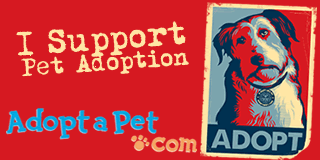I noticed a cat sitting on a fence near the train station and made a mental note to see if she was still there the next time I went (there are several houses nearby and the cat was not thin nor did she look neglected or abandoned). That ended up being yesterday. After seeing her and slowing down, thinking of stopping to give food out of my trunk (I'm one of those people), I noticed several black and white cats and I knew there was a family. So I pull over, pop the trunk, and dump out some dog kibble. That was all I had.
A woman was feeding the cats about forty feet away and hurried over to chat. Turns out, it was a "managed colony," a term I had never heard before. She has been trapping and spaying/neutering the cats there for some years, and they are all fixed. She feeds them twice a day and otherwise looks out for them. They are feral and cannot be made into house cats, according to her and others I know who have said the same thing.
I had never heard of this term "managed colony" before. However, there is a woman in my building who feeds the cats in the empty lot behind the building, a wooded lot (that's a favorite spot of mine just after a snowfall). She has a cat house out there, and her and her husband feed them twice a day. She's mentioned that they are all fixed, after she trapped them and brought them to the vet. I and an older gentleman feed the birds and squirrels at the other end of the lot. It's a beautiful little piece of land with many trees and lots of animals that take cover there, including a skunk and sometimes a coyote. The skunk and I have an agreement: the lot is his after 7:30pm, when my dogs get their mid-evening walk, and we steer clear. I put water out in the warm months and I'm certain he goes to drink each night.
Once a guy walking his dog out back crushed one of the cat houses (there were two), and I happened to be at my car in the adjacent parking lot. I took a picture of him with my cell phone so he knew that I knew what he looked like. I glared the don't-mess-with-that-glare, and he never has touched it again. I don't understand people. Clearly these were not abandoned cat houses, and they have two dishes of fresh food there most times you look.
Anyway, turns out the cat lady in my building and the cat lady by the train station both took the same community class about managing cat colonies. Small world.
Where do such classes take place? Well, it so happens that just today I recieved the following information in my email, from Best Friends Animal Society. It's all about managing a cat colony, humanely trapping them to be able to get them fixed, releasing them back in their familiar area, and caring for them. It was no accident the cats I saw all looked like they belonged in someone's house.
Dear Best Friends member,
If you love cats, Best Friends Animal Society invites you to a free workshop on how to help community cats. Focus on Felines Boot Camp will be held on Sunday, February 27th from 2:00 p.m. – 4:30 p.m. at Tabby’s Place, 1100 US Highway 202, Ringoes, New Jersey.
In just two and a half hours, you’ll learn how to improve and save the lives of free-roaming cats in your neighborhood. You’ll receive the latest information and tools for helping community cats. Topics include working with neighbors and animal control, feral cat care and management, trap/neuter/return techniques and more. For details, visit: "TNR Training" on the Best Friends Network website.
Attendees will learn about trap/neuter/return (TNR) techniques, nuisance control, animal control, free-roaming cat care and management as well as working with neighbors, vets and local government and animal control.
New Jersey’s community cats really need your help! Please sign up for Best Friends’ Focus on Feline Boot Camp today by e-mailing Danielle Rice at: dr@tabbysplace.org or calling (908)237-5300, ext. 450.
From all of the cats whose lives will be made better or saved—thank you for caring! I’m looking forward to meeting you on February 27th. Together we can make the dream of No More Homeless Pets come true.
Best wishes,
Shelly Kotter
Cat initiative
National Specialist
http://network.bestfriends.org/campaigns/felines/default.aspx
Saving Lives One Cat At a Time
P.S. – Please pass this invitation along to other kitty-loving friends or family members, or bring another cat lover with you to the Focus on Felines Boot Camp.
In case you're wondering, as I have, how exactly they trap cats in order to fix them, here's a video.
Share














